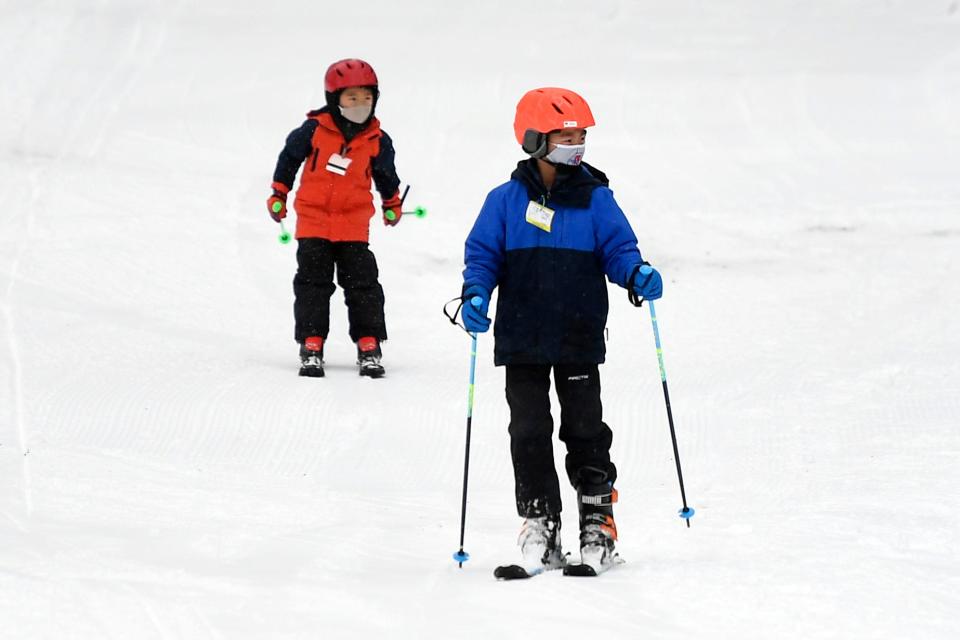'Are we there yet?': Tips for parents navigating winter school breaks | Opinion
We have barely gotten back to routine of school, and now, as Omicron looms, it seems like once again we are being thrust out of it — and just in time for the winter break and vacation season, a time that’s already challenging for some of us and some of our kids. How can we help navigate these times for our kids, especially as we head into vacation, and especially for those kids who rely on predictability and routine, or sometimes struggle in new social situations?
For us as parents, school vacations always presented their own stress depending on how well prepared we were and what we had planned. Over time and experience, I have come to learn that the hard work always begins with me — being mentally prepared and learning to manage my own expectations about what constitutes a “successful” school break. Our kids are older now, and sure, they remember the big trips, but they equally remember the homemade pizza topping nights, or the guitar jams, or baking and cooking together in the kitchen.
As much as we love chasing the newest attraction, and sometimes measure ourselves by how much we have planned out for our kids over vacation, it’s important to remind ourselves what we all know, that it’s quality not quantity — that being in the moment and enjoying the time together is the lasting memory. I’m not lowering my expectations — I’m shifting them.
Vacations and breaks from routine afford wonderful times to connect to your child’s interests or involve them in your own. Exploring something that interests them or including them in something that is important to you offers exquisite bonding time. For the child who does not necessarily excel in school, finding and cultivating a hobby or interest, something that they can master and feel “expert” at, is especially valuable and will boost their sense of self. When a parent takes an interest and supports their child’s interests and activities, it can be so validating and helps to nurture a lasting bond.
The days or evenings spent at home also afford so many innate and creative learning opportunities that could be used to boost learning. There are so many ways to sharpen math skills or higher order thinking skills, for example, through cooking, baking, woodworking, or even reading together and wondering aloud how a story might end differently. For many children, especially struggling learners, learning experientially through these kinds of activities can strengthen their understanding of a subject or sharpen a skill, which can be especially helpful when they return to the classroom.
For some children who are socially uncomfortable or have a hard time when their routines are disrupted because of family gatherings, time spent with the extended family or in other homes, can be very stressful. Take the time, either on your own or with your spouse, to preview these stressors and discuss the steps you can take to help your child manage or alleviate that stress. After thinking through an approach, and depending on the child’s age, have a thoughtful conversation with your child ahead of time so that you can be attuned to any anxiety they’re feeling, and so that they know that you are thinking about them. It will be easier to plan together and preview if they know you care about how they feel.

For children who rely on predictability and routines, let them know ahead of time what the schedule is going to be, to alleviate some of that potential anxiety and consider building in an appropriate vacation routine that will help the transition back into school.
Finally, focus on yourself, on your mindset and tone and what you will need to be relaxed, present and positive. Kids are really smart. They see through a lot and it’s often not what we say but how we act that matters. How do we react to stress and disappointments? How do we listen? How do we appreciate one another and practice gratitude? How do we practice hospitality? How do we weather uncertain times?
It’s up to us to embrace these vacation moments and use them to strengthen our bonds, think about what matters most, and model the values that we hope to impart. If we’re successful we’ll instill those, and one day they will do the same.
Debbie Niderberg is the co-founder and executive director of Hidden Sparks, a nonprofit focused on providing day school educators with the tools to help struggling learners in mainstream classrooms. Over the past 15 years, the organization has worked with 3,875 educators, directly impacting close to 50,000 students. She has learned many life lessons from raising six children of her own with her husband.
This article originally appeared on NorthJersey.com: Tips for parents navigating winter school breaks

